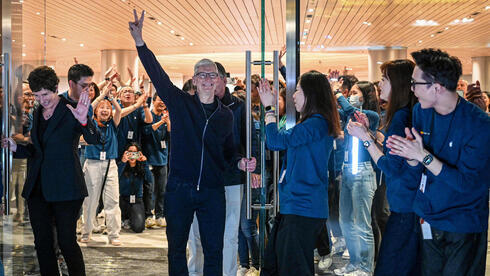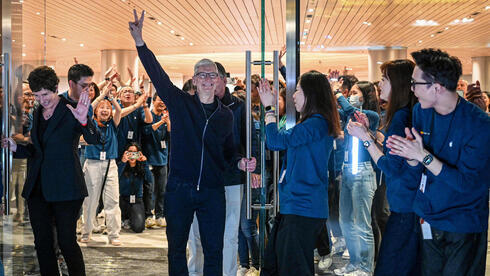
Microsoft overtakes Apple as world’s most valuable company amid tariff turbulence
The iPhone maker, which relies on factories in China, has seen its stock fall by 23% over four days amid concerns about a significant increase in the price of its products. As a result, its value fell to $2.59 trillion, compared to Microsoft's $2.64 trillion.
Under the shadow of U.S. President Donald Trump’s sweeping new tariff plan, Microsoft has overtaken Apple to reclaim the title of the world’s most valuable publicly traded company.
Apple’s stock plunged 5% in Tuesday’s trading session on Wall Street, capping a four-day losing streak in which it lost a staggering 23%—its worst run since the 2008 financial crisis. The tech giant’s market capitalization now stands at $2.59 trillion, falling behind Microsoft, which held steady at $2.64 trillion.
The broader Nasdaq index has dropped 13% over the past four trading days, coinciding with market anxiety following the announcement of Trump’s new tariff plan. But Apple has taken a disproportionately heavy hit, due largely to its deep reliance on Chinese manufacturing. Analysts at UBS estimate that the price of Apple’s flagship iPhone 16 Pro Max could surge by as much as $350 in the U.S. as a result of new import costs.
Earlier this year, Apple, Microsoft, and Nvidia each surpassed the $3 trillion valuation mark. But with the latest market turmoil, Nvidia also saw losses—declining by 1.4% on Tuesday and falling to a $2.35 trillion valuation.
Microsoft, despite issuing a somewhat disappointing revenue forecast in January, appears to be weathering the current economic storm better than its peers. Analysts at Jefferies noted last week that Microsoft is among the companies "expected to be relatively insulated" from the disruption caused by the new tariff policy.
This isn't the first time Microsoft has edged out Apple. The Redmond-based software giant briefly took the top spot earlier in 2024, only to be surpassed again by Apple in subsequent months. With the market in flux, the top rank may continue to shift—depending not only on innovation, but also on global trade policy.















